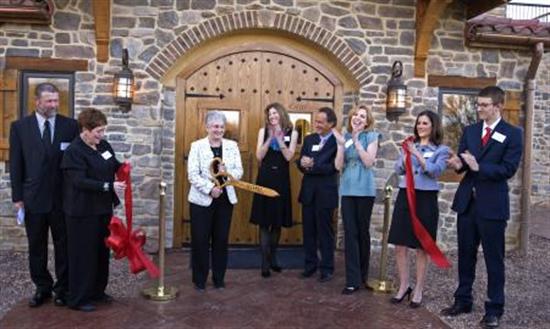News Home
Foxx's Bipartisan Regulatory Transparency Legislation Advances From House Oversight & Government Reform CommitteeRegulatory Reform Effort Led by Foxx, Sanchez, Lankford, McIntyre, Peterson Receives Committee Approval
Washington, D.C.,
July 24, 2013
|
Ericka Perryman
(202-225-2071)
Tags:
Jobs and the Economy
Transparency and accountability are not partisan issues. Democrats and Republicans who worked together to pass UMRA in 1995 believed the American people would be served better if government issued regulations only when the cost of those regulations was fully understood. My colleagues and I still think that’s the case. And while UMRA is good, it needs to be strengthened. The Unfunded Mandates Information and Transparency Act builds off of UMRA and goes even further to make sure government is held accountable for considering how prospective regulatory will impact small businesses and local governments.
The legislation is purely about making government work better for the American people by requiring openness and honesty from Washington about the true cost of regulations, whether those costs come in dollars or in lost jobs. It is my hope the strong bipartisan support with which it was introduced will pave the way for its swift passage from the House of Representatives.
Today bipartisan regulatory transparency legislation sponsored by Representatives Virginia Foxx (R-NC), Loretta Sanchez (D-CA), James Lankford (R-OK), Mike McIntyre (D-NC), and Collin Peterson (D-MN) successfully advanced from the Oversight and Government Reform Committee. The Unfunded Mandates Information and Transparency Act, H.R. 899, will fix loopholes within the bipartisan regulatory reform act known as UMRA. Representative Virginia Foxx – “Transparency and accountability are not partisan issues. Democrats and Republicans who worked together to pass UMRA in 1995 believed the American people would be served better if government issued regulations only when the cost of those regulations was fully understood. My colleagues and I still think that’s the case. And while UMRA is good, it needs to be strengthened. The Unfunded Mandates Information and Transparency Act builds off of UMRA and goes even further to make sure government is held accountable for considering how prospective regulations will impact small businesses and local governments. "The legislation is purely about making government work better for the American people by requiring openness and honesty from Washington about the true cost of regulations, whether those costs come in dollars or in lost jobs. It is my hope the strong bipartisan support with which it was introduced will pave the way for its swift passage from the House of Representatives.” Representative Loretta Sanchez –“This bill will help protect state and local governments from unfunded, unnecessary mandates that waste time and money. Our bill will hold federal agencies accountable by requiring public reporting on these mandates.” Representative James Lankford – “I am proud to join Rep. Foxx to move this bill through the next phase of the legislative process. Excessive federal rules and regulations continue to find their way around existing law to further restrict states and business owners already burdened under the mountain of federal bureaucracy. The Unfunded Mandates Information and Transparency Act of 2013 will zero in on every future mandate to empower local governments and private businesses to push back on harmful regulations. This bill is a first step in an important overhaul effort for a more commonsense regulatory structure, which will increase transparency and efficiency.” Representative Mike McIntyre – “Unfunded and duplicative mandates strangle the free enterprise system, and this bill is a great step toward reforming the regulatory process, streamlining government, and saving taxpayers’ time and money. Passing this bill out of committee is a positive step forward, and let’s keep working together to enact it into law!” Representative Collin Peterson – “It’s time to establish a more open and transparent process of federal mandates, providing our constituents with a complete assessment on the impact of government regulations. The Unfunded Mandates Information & Transparency Act modernizes the process and is a first step to the reforms I believe need to be made to the regulatory process.” H.R. 899 will increase transparency about the costs imposed by unfunded mandates and will hold government accountable for considering those costs before passing them onto local governments and small businesses. The legislation expands the scope of the Unfunded Mandates Reform Act of 1995 (UMRA), which was passed to ensure public awareness of the financial burden federal mandates place on employers and state and local governments. Current loopholes within UMRA allow Congress and certain regulatory bodies to escape public reporting requirements and incentivize others to forego publicizing regulatory proposals. Foxx’s legislation will correct this. Specifically, H.R. 899 will:
Foxx’s legislation also requires the federal government to report how legislative changes to existing federal grant programs might shift costs to state, local, and tribal governments. For instance, grant programs which are administered by states can be altered by federal legislation such as No Child Left Behind and the Patient Protection and Affordable Care Act to impose new financial burdens for participation. Under H.R. 899 the federal government would be statutorily required to report how such changes would impact state or local government budgets. Support for the Unfunded Mandates Information and Transparency Act has been voiced in letters from the National Conference of State Legislatures, the United States Chamber of Commerce, the National Federation of Independent Business and the Small Business & Entrepreneurship Council. # # # |


